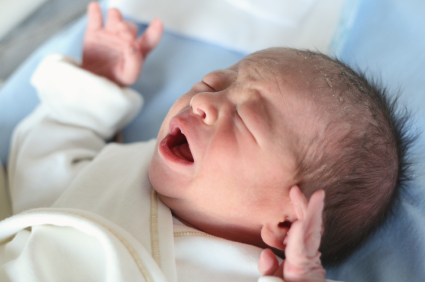One cry, and I stumble from bed, cow-heavy and floral
In my Victorian nightgown.
Your mouth opens clean as a cat’s. The window square
Whitens and swallows its dull stars. And now you try
Your handful of notes;
The clear vowels rise like balloons.
Morning Song, Sylvia Plath
Crying baby, istock photos
Scripture: I will never leave you nor forsake you. (Hebrews 13:5)
The balancing act
Here at the beginning of a brand new day is a dreamy unquestioning expectation. A baby’s simple desires are expressed and unerringly met - the lifting of the head and the opening of the mouth to cry and to suckle. An attentive responsiveness on the part of the mother is hoped for! Given the rude expulsion from the womb the baby grasps for ‘an inner sense of trustworthiness and reliability that can balance the terrors of separation and abandonment’ (Jean Piaget)
Trust the bond
This image reminds me of RS Thomas’s poem West Coast about rugged men lifting heads, washing their shallow faces in the sun. But I also think of the disciples at their final Passover meal with Jesus. Their equilibrium is about to be rudely disturbed. They are to be thrust into an uncertainty about a great many things. They fix upon the face, gestures and words of their Lord and teacher. Ever attentive Jesus eagerly responds by cutting a new covenant in his blood (Luke 22:20). He ties himself to us with a bond of love and then takes us with him, helping us through disorientating transition, across thresholds, guiding us through and into new life. I’m making a way, follow me, trust me. He reasserts this each time we take the Eucharist, inviting us to lift our heads, open our mouths and simply trust Him and this bond to sustain us on our bumpy journey. Can a mother forget the baby at her breast? Will I trust Jesus's costly bond with me?
